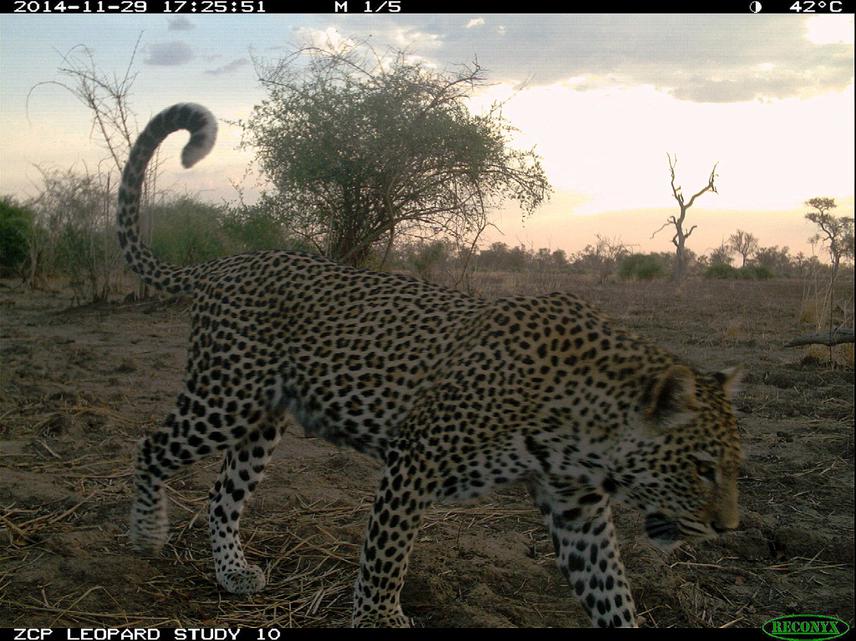Matthew Becker
This project will be the first effort in the Luangwa Valley to estimate the current leopard population size, characteristics and density within South Luangwa National Park and bordering Game Management Areas.

Eastern Zambia’s Luangwa Valley is thought to hold one of the densest leopard populations on the continent, based on sightings from tourists and harvests by hunters in South Luangwa National Park (SLNP) and surrounding Game Management Areas (GMA’s) respectively. Nevertheless virtually no information exists on this species’ density, distribution, and population characteristics. Given leopards are a declining CITES Appendix I species, the Zambian Carnivore Programme (ZCP) is implementing intensive photographic surveys of leopard in the Luangwa Valley to begin evaluating leopard populations to better inform conservation and management efforts in this key ecosystem.
Twenty-eight camera trapping sites will be designated in a grid sampling scheme within SLNP and in a bordering GMA, and camera traps will be deployed throughout these sites over eighty days in 2012. The unique spot patterns on sides of passing leopards will allow ZCP to track sightings of these individuals and estimate the population size and density within the sample areas. These figures will be comparable to other studied leopard populations, providing a base for future leopard studies in the region.
In addition to this study being the first rigorous study of leopards in the region, this project will involve a wide array of local students and wildlife professionals. In two pilot studies for this project in 2011 ZCP, in coordination with Chipembele Wildlife Education Trust (www.chipembele.org; CWET), worked with thirty students from a local secondary school to develop and test hypotheses involving large herbivores using the deployed camera traps. This type of educational outreach will continue to include the upcoming full scale project in 2012, allowing more students to further develop their understanding of scientific research. In addition to local students, this project will involve Zambian wildlife professionals within Zambian Wildlife Authority and ZCP and Zambian safari guides interest in conservation research. These personnel will be involved with the project’s execution, providing local aspiring and working wildlife biologists with in-depth training with camera traps.